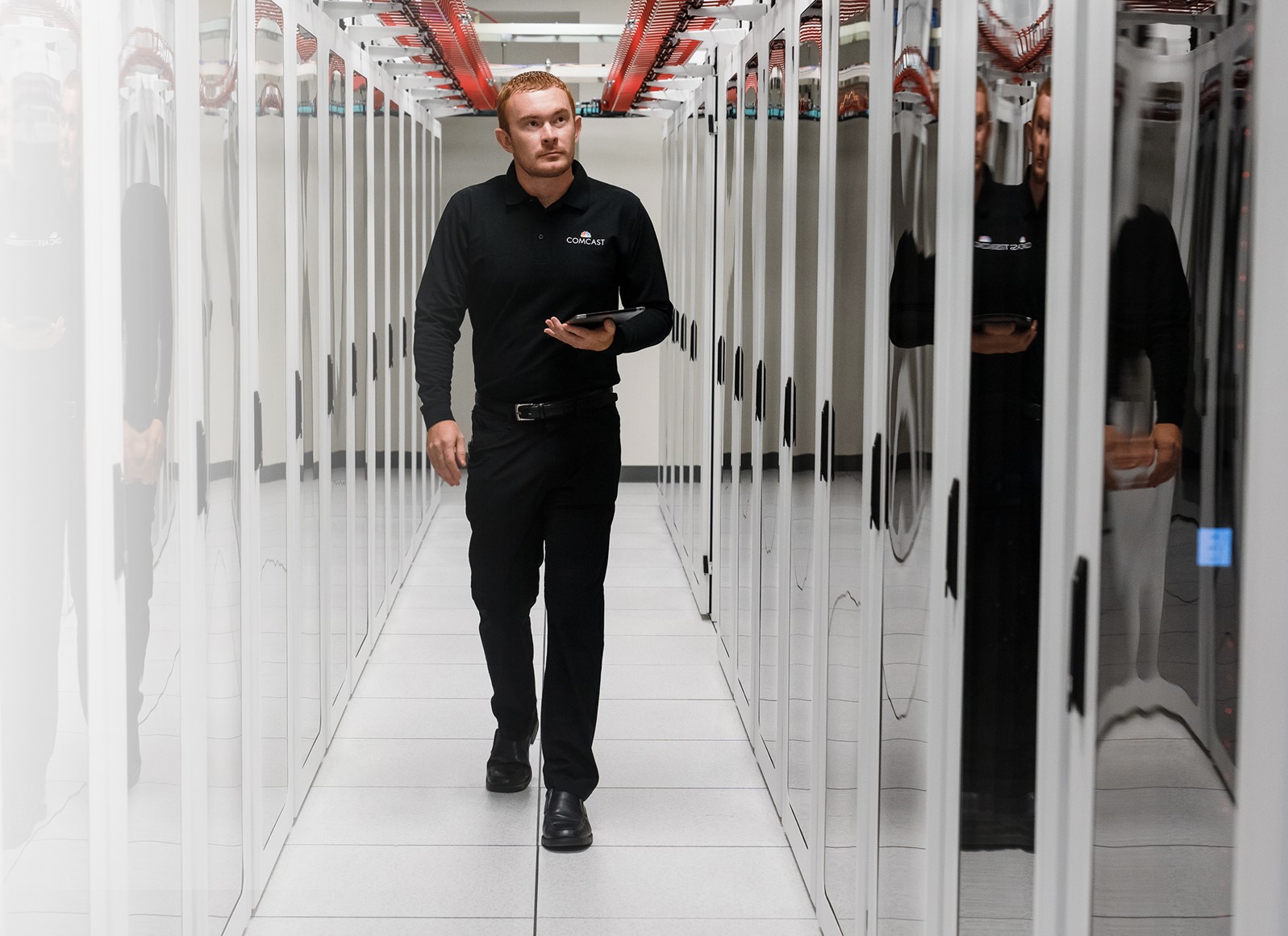Comcast Plans to Double Network Energy Efficiency By 2030
Comcast will grow its network more sustainably by cutting the electricity per byte of data in half by 2030

The professional video industry's #1 source for news, trends and product and tech information. Sign up below.
You are now subscribed
Your newsletter sign-up was successful
PHILADELPHIA, Pa.—Comcast has announced that Comcast Cable plans to double its network energy efficiency by 2030, cutting the electricity per consumed terabyte of data in half.
“We’re on the path to a greener internet,” said Charlie Herrin, president of the Technology, Product, Experience organization within Comcast Cable. “The smart technologies powering our new network architecture are transforming how data is delivered, providing the industry’s best combination of speed, coverage, and control – all more sustainably.”
Comcast made the announcement at SCTE Cable-Tec Expo 2022, where the operator purchased and gifted renewable energy certificates that will power SCTE Cable-Tec Expo 2022 with 100% clean energy.
Comcast has been investing in a nationwide network transformation to virtual, cloud-based technologies that offer faster broadband speeds, greater reliability, and improved energy efficiency. The new virtualized platform includes more centralized locations for headends, hubs, and data centers that are more efficient than previous technologies, requiring less hardware, less space, and less energy per byte.
Comcast has also set a goal to be carbon neutral by 2035 for Scope 1 and 2 emissions, or the direct and indirect emissions it owns and controls, across its global operations. With purchased electricity accounting for the majority of its emissions, Comcast is investing in clean, renewable energy to power its network and operations, as well as shifting to newer, more energy-efficient technologies and facilities to deliver more data with less energy per byte.
“Achieving our carbon neutral goal will require our business to work harder and smarter, and that goes for the network itself,” Herrin added. “We’re proud to make network energy efficiency a priority among our peers and suppliers, and to demonstrate the role our industry has in creating a more sustainable future.”
The professional video industry's #1 source for news, trends and product and tech information. Sign up below.
George Winslow is the senior content producer for TV Tech. He has written about the television, media and technology industries for nearly 30 years for such publications as Broadcasting & Cable, Multichannel News and TV Tech. Over the years, he has edited a number of magazines, including Multichannel News International and World Screen, and moderated panels at such major industry events as NAB and MIP TV. He has published two books and dozens of encyclopedia articles on such subjects as the media, New York City history and economics.

